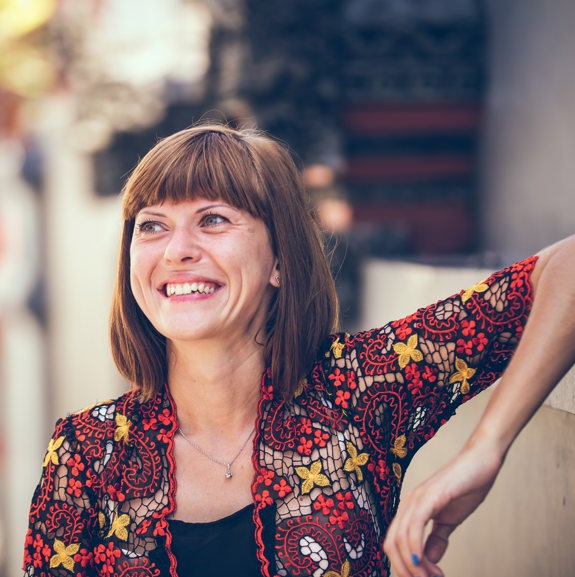Finding the right support
"I feel as though I'm real now'

Lucy's story
After a head injury nearly thirteen years ago, Lucy developed an Acquired Brain Injury (ABI). Despite this and other health issues having a major impact on her ability to live independently, even making her unable to walk for some time, Lucy didn’t fit the criteria to be offered the support she needed. When York City Council Support Services referred her to Brain in Hand, Lucy hoped it could provide her with support that would always be with her as she navigated the world, people, and changing circumstances.
Before, I didn’t want people to see me like this. It wasn’t avoidance, it was fear. A whole life of what-ifs. I’m not frightened of going out now.
Using Brain in Hand
Lucy, who lost most of her technical skills due to her ABI, worried at first about getting set up with Brain in Hand. She says that Helen’s belief in her, and in Brain in Hand’s potential to lead her out of her struggles, helped her to keep going. “The setting up part was really under a lot of testing circumstances due to COVID, but it’s an absolute credit to people from Brain in Hand who kept in touch regularly by email and my specialist who came to see me. Everybody was absolutely brilliant. The warmth of the conversation during my specialist sessions made up for it. I remembered the information because it came with kindness, thought, and a dedication to what you do.”
Lucy feels that the diary feature in her Brain in Hand offers her the support she needs on her day-to-day and made her feel safer when going out for a walk. Plus, the customisable nature of the system appealed to her, allowing her to tailor her support to her own stumbling blocks. “It could be anything and it’s so adaptable,” Lucy says. “That’s what I needed.”
Finding the right support
Although other services had previously advised that what she needed was a personal assistant, Lucy says it’s taken her thirteen years to find something that “talked to her head” and that she could take with her wherever she went.
“Now I just go out,” she says, “I don’t even think about it. I just get my coat, do my checklist, and just go. Then when I come back, I suddenly realise I had a chat with the lady at the checkout, then when I got on the bus the driver made some comment and I actually returned the comment and got a smile. Before, I didn’t want people to see me like this. I couldn’t cope with it and I disappeared, I didn’t engage, I didn’t ring people, I didn’t go out, I would go to the shops when it was dark. It wasn’t avoidance, it was fear. A whole life of what-ifs. I’m not frightened of going out now.”
When there’s hope, you start getting well and I’m starting to get well. Brain in Hand reminded me that I have a life and I can actually live it this time.
Since using Brain in Hand, Lucy has stopped experiencing night terrors and patterns of lights in her sleep that would cause her a large amount of pain and distress. She now has a night-time routine that helps her feel grounded and safe; before, she would have fallen asleep during the day due to the exhaustion that those episodes used to cause her. She has mentioned that she feels stronger when dealing with negative situations, saying: “It’s almost like leaning against a warm wall that gives you comfort.” That strength has grown from the support provided by Brain in Hand and York City Council Social Services. “This has worked because of the kindness of strangers, the skill and the professionalism the people guiding me. Before, I had a brain that was dying, intellectually, I was completely sterile. There were days where I didn’t bother getting dressed. I became frightened of everything.”
When asked whether Lucy would recommend Brain in Hand to someone who was considering using it, she said that she would and added: “When there’s hope, you start getting well and I’m starting to get well. Brain in Hand reminded me that I have a life and I can actually live it this time.”